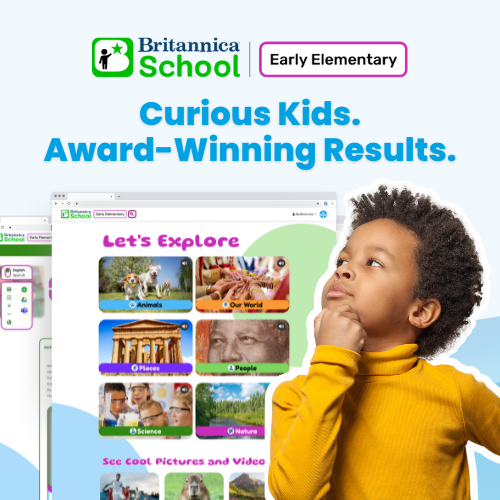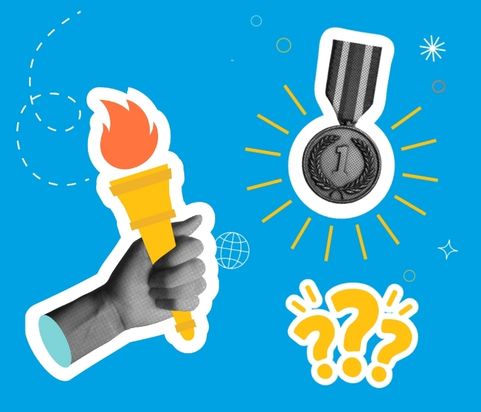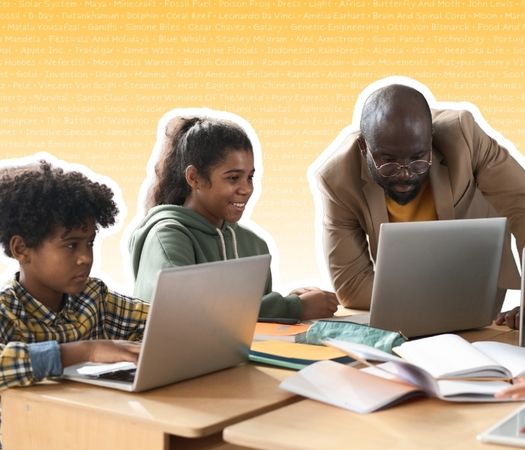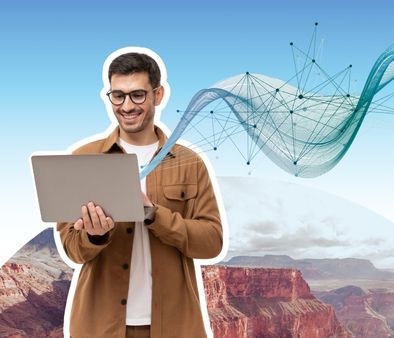

Table Of Contents
Developing Arguments About Human Impact Using Expedition: Learn!
Teaching argumentation skills addressing real-world environmental issues in today’s classroom isn’t easy. Between sorting fact from opinion, getting caught up in conflicting information (or battling disinformation and misinformation), and getting students to back up their claims with actual evidence (not just “I saw it on TikTok”), it can feel like an uphill climb.
That’s where Expedition: Learn! comes in. Our science lessons and hands-on activities guide students to critically analyze data, collaborate with their peers, and construct strong arguments based on evidence and scientific reasoning—helping them understand not just what is happening to our planet but why it matters and what we can do about it.
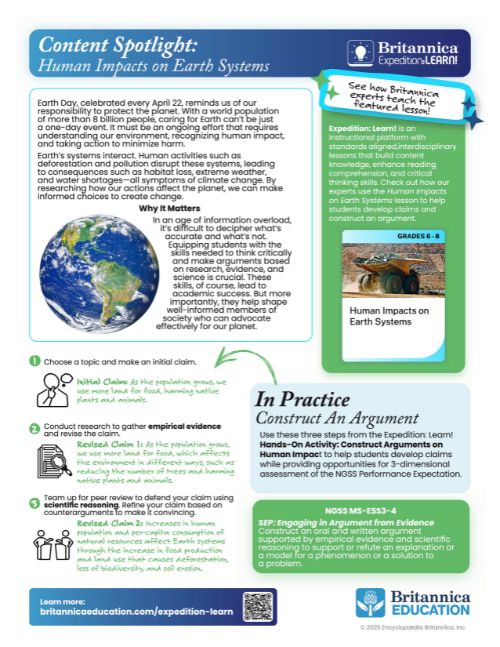
Take a look at how our experts use the featured lesson, Human Impacts on Earth Systems, to explore content and craft effective arguments rooted in scientific best practices—just in time for Earth Day and beyond.
Help Students Understand Why It Matters
Earth Day, celebrated every April 22, reminds us of our responsibility to protect the planet. With a world population of more than 8 billion people, caring for Earth can’t be just a one-day event. It must be an ongoing effort that requires understanding our environment, recognizing human impact, and taking action to minimize harm.
Earth’s systems interact. Human activities such as deforestation and pollution disrupt these systems and their interactions, leading to consequences such as habitat loss, extreme weather, and water shortages—all symptoms of climate change. By researching how our actions affect the planet, we can make informed choices to create change.

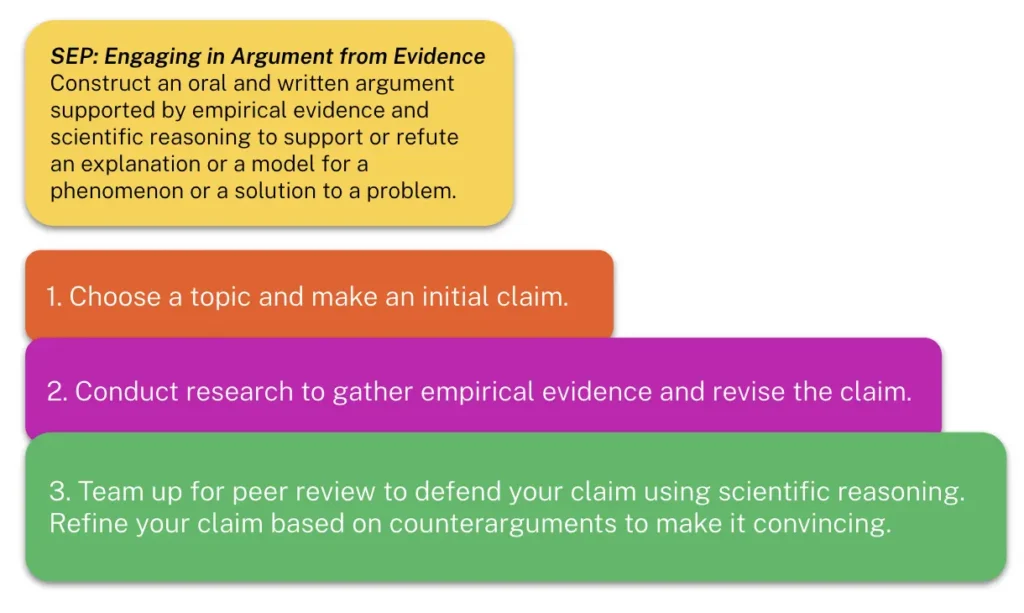
In an age of information overload, it’s difficult to decipher what’s accurate and what’s not. Equipping students with the skills needed to think critically and make arguments based on research and evidence is crucial. These skills, of course, lead to academic success. But more importantly, they help shape well-informed members of society who can advocate effectively for our planet.
Construct an Argument in 3 Easy Steps
Engaging in evidence-based arguments is a foundational skill in science—one that builds critical thinking and deep understanding. With Expedition: Learn!,you can walk students through the process of creating an effective claim from start to end. The result? A well-supported scientific argument not only masters the standards but also helps students feel empowered to advocate for change.
Check out these three easy steps that help your students construct a convincing argument rooted in scientific evidence:
See how our experts use these three steps to make arguments about human impact on Earth’s systems using the featured lesson’s hands-on activity—in honor of Earth Day!
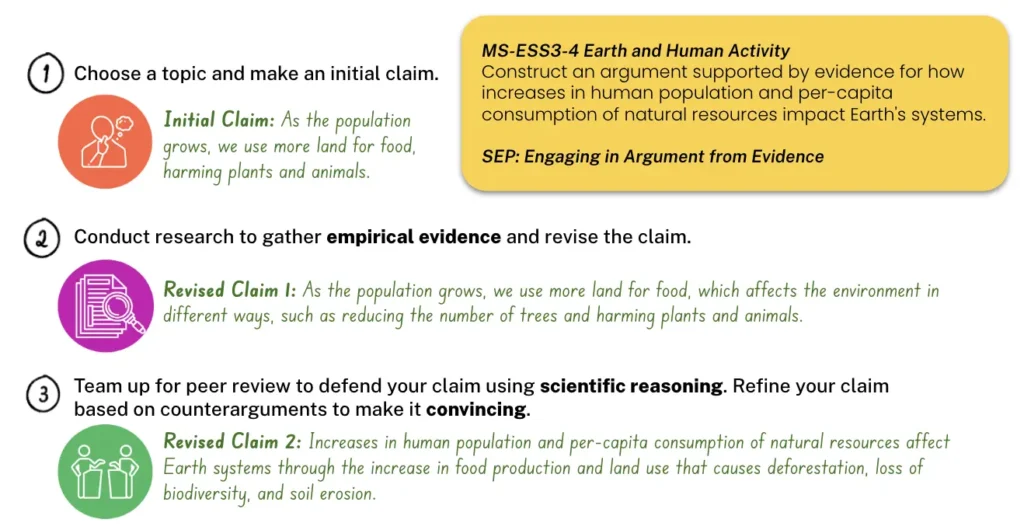
Expedition: Learn! is grounded in decades of research and evidence-based practice. Lessons can be used for whole-class instruction, small-group reteaching, or independent practice. Expedition: Learn! is perfect for standards mastery because each lesson is built to provide teachers with opportunities for three-dimensional standard assessment and give students the tools to master them. Help make Earth Day tangible for your students! Book a demo of Expedition: Learn!

Expedition: Learn! in the Classroom
Check out other ways to use the featured lesson, Human Impacts on Earth Systems, using our full Content Spotlight that features engaging activities, thoughtful discussion questions, graphic organizers, and more!

About the Author
Molly Rhoadhouse
Science Subject Matter Expert
After working in the field of molecular biology, Molly shifted her career focus to educational publishing. As an independent business owner for more than 20 years, she contributed to a vast number of products for clients such as McGraw Hill, Pearson/Savvas, and Twig Science. Molly joined Britannica in 2021, where she has led the Expedition: Learn science team since its inception. In addition to her degree in Life Science, Molly has a graduate certificate in Instructional Design from the University of Wisconsin.

Recent Posts

Join Our Newsletter
From tips and tricks to engaging activities, find
attention-grabbing content for tomorrow’s lesson.






